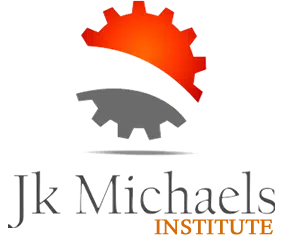Program Management Best Practices
Program Management Best Practices
“Maximizing Success with Program Management Best Practices”
Program Management Best Practices will be discussed in this article. Program management is a critical aspect of any organization. It involves overseeing multiple projects and ensuring that things are finished to stakeholders’ satisfaction, on schedule, and within the allocated budget. Effective program management requires technical skills, business acumen and the ability to lead and motivate a team. In this article, we’ll talk about some of the best practices for program management and how you can apply them to achieve successful outcomes.
“Defining the Goals and Objectives of Your Program”
Program management begins with a clear definition of the goals and objectives of the program. It involves understanding the needs of stakeholders, identifying the resources required, and establishing a timeline for completion. The aims and goals should be clear, measurable, achievable, relevant and time-bound (SMART). Once the goals and objectives are established, you can develop a plan for achieving them.
“Developing a Detailed Project Plan”
A detailed project plan is the foundation of any successful program. This strategy should have a timetable, budget, resource allocation, risk management, and communication plan. The project plan should be flexible and able to adapt to changing circumstances. Still, it should also be comprehensive enough to ensure everything is noticed.
“Building a Strong Team and Establishing Clear Roles and Responsibilities”
Effective program management requires a strong team with clear roles and responsibilities. It includes assigning tasks and responsibilities to team members, establishing a chain of command, and creating a positive work environment. Communication is also crucial to a successful program, and regular updates and progress reports should be provided to all stakeholders.
“Monitoring and Controlling the Program” Monitoring and controlling the program is essential to ensure that it stays on track and achieves its goals and objectives. It includes regular progress reports, financial analysis, risk management, and change control. In addition, regular reviews should be conducted to assess the program’s status and identify areas where improvement is needed.
“Frequently Asked Questions on Program Management Best Practices”
Q: What are the benefits of effective program management? A: Effective program management can result in the successful completion of projects, improved collaboration and communication, increased efficiency and productivity, and better alignment with the goals and objectives of the organization.
Q: How do you ensure successful program management? A: Successful program management requires a clear definition of goals and objectives, a comprehensive project plan, a strong team with clear roles and responsibilities, effective monitoring and control, and regular reviews to assess progress and identify areas for improvement.
Q: What are the critical skills needed for program management? A: Key skills for program management include leadership, communication, technical knowledge, project management, financial management, risk management, and problem-solving.
Conclusion
Program management is a critical aspect of any organization. It requires a combination of technical skills, business acumen and the ability to lead and motivate a team. By following best practices for program management, such as defining goals and objectives, developing a detailed project plan, building a solid team, and monitoring and controlling the program, organizations can achieve successful outcomes and meet the needs of stakeholders. In addition, by implementing program management best practices, organizations can maximize the chances of success and deliver projects on schedule, on budget, and with all stakeholders satisfied.
JK Michaels Institute offers other courses, posts, Lean six sigma levels., Project Management and its Objectives, Project Management Professional PMP Certification, Goals of six sigma and Business Analysis.



